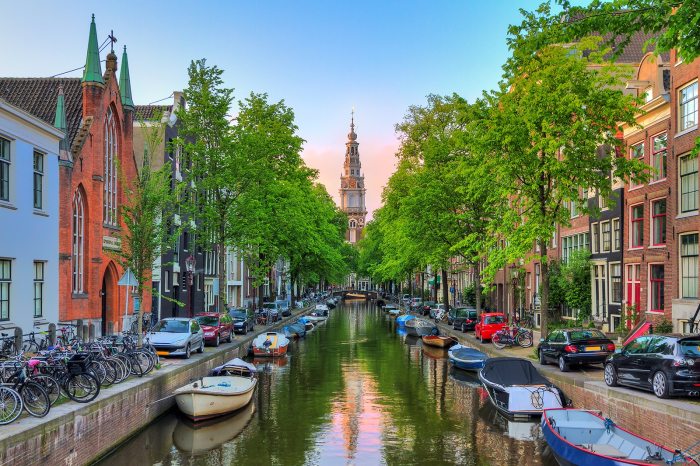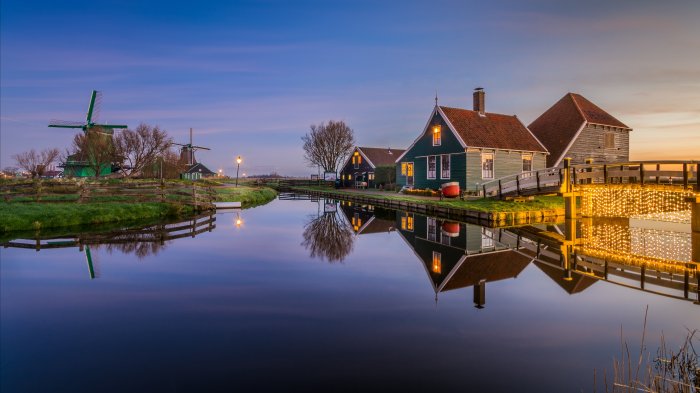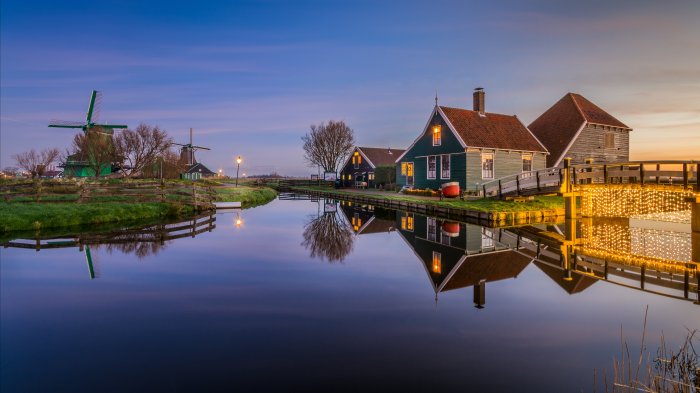Travel news netherlands holland official name – Travel news Netherlands, Holland, official name: Delving into the nuanced naming conventions surrounding the Netherlands, a country often referred to by different appellations, reveals a fascinating interplay of history, geography, and international perception. From formal government documents to tourist brochures, and from news articles to casual conversation, the use of “Netherlands,” “Holland,” and the formal “Kingdom of the Netherlands” varies.
This exploration delves into the intricacies of these names, examining their historical evolution, their current usage in different contexts, and their impact on the country’s international image.
Understanding the nuances of these names is crucial for anyone planning a trip or engaging with the country on a professional level. This article provides a comprehensive overview of the official and informal usage of these names across various contexts, from government publications to tourist materials, news coverage, and international perception. It also analyzes how these naming conventions affect tourism strategies and marketing campaigns.
The detailed breakdown includes examples and tables to clarify the complexities of the situation.
Official Naming Conventions
The Netherlands, a country often associated with the iconic windmills and canals of Holland, is frequently referred to by a variety of names. Understanding these names, their historical context, and official usage is crucial for accurate communication and respectful representation of this fascinating nation. This exploration delves into the complexities of these naming conventions, clarifying the distinctions between informal and formal usage in various contexts.The Dutch themselves and international bodies use a range of names for the country, often influenced by historical context and the specific context of communication.
Did you know the official name of the Netherlands is the Kingdom of the Netherlands? It’s fascinating stuff, but sometimes the best travel prep is knowing which solid travel toiletries to pack! For expert advice on the best solid travel toiletries, check out this helpful guide: best solid travel toiletries writer picks. Regardless of the official name, it’s a beautiful country to explore, and good solid travel toiletries will help you pack light for any Dutch adventure!
This often leads to confusion, especially for those unfamiliar with the nuanced history of these names.
Different Names Used for the Netherlands
The Netherlands, officially the Kingdom of the Netherlands, is frequently referred to by other names, both formal and informal. These names reflect its historical evolution and the way it is perceived internationally. The name “Holland” is a prime example, often used informally, but sometimes misunderstood in its application.
Historical Overview of Naming Conventions
The historical usage of different names for the Netherlands is deeply rooted in the country’s political and geographical development. Initially, the region was composed of various provinces, with the term “Holland” referring to a specific region within the current Netherlands. Over time, the term “Holland” became synonymous with the entire country in popular usage. However, the formal and official name has always been, and continues to be, the Kingdom of the Netherlands.
Official Usage in Government Documents and Official Communications
In official documents, communications, and international relations, the formal name “Kingdom of the Netherlands” is consistently employed. This formal name reflects the country’s constitutional structure and its sovereign status within the global community. While “Netherlands” is also frequently used in official contexts, the complete formal name is always present in official correspondence and legal instruments.
While the official name of the Netherlands (Holland) is a bit of a confusing travel news topic, it’s always good to know the history behind a country. If you’re looking for some amazing places to explore, checking out the top things to do in Cartagena, Colombia, is a fantastic idea! top things to do in cartagena colombia offers a great selection of historical sites, vibrant nightlife, and stunning beaches.
Ultimately, understanding the intricacies of a country’s name can be part of the fun of travel planning, and these types of trips make the journey more memorable.
Comparison of Usage in Different Contexts
The usage of these names varies significantly across different contexts. In formal government documents, the complete formal name is essential. In tourism brochures, a mix of formal and informal names is often seen, with “Netherlands,” “Holland,” and sometimes “The Netherlands” appearing alongside the formal name. News articles and academic publications often use “Netherlands” as the standard name, with “Holland” appearing more frequently when referencing specific historical periods or regional aspects of the country.
Table Illustrating Formal and Informal Usage
| Context | Formal Name | Informal Name(s) |
|---|---|---|
| Government Documents | Kingdom of the Netherlands | Netherlands, Holland |
| Tourist Brochures | Kingdom of the Netherlands | Netherlands, Holland, The Netherlands |
| News Articles | Kingdom of the Netherlands | Netherlands, Holland |
| Academic Publications | Kingdom of the Netherlands | Netherlands |
News Coverage and Media Usage

The way the Netherlands is referred to in news reports reflects a complex interplay of tradition, international relations, and the specific context of each story. Understanding these nuances is crucial for accurate reporting and a comprehensive understanding of the nation’s image in the global media landscape. Different names, while seemingly minor details, can subtly shift public perception.Different media outlets prioritize different aspects of the country.
National Dutch news outlets are likely to use the formal, official name, “Netherlands,” while international outlets might prioritize a shorter, more easily digestible name, often leading to variations in usage. The frequency of each name used, and potential shifts in that frequency over time, can highlight changing trends in how the country is perceived globally.
Examples of Media Usage
News outlets frequently use “Netherlands” to refer to the country, especially in formal contexts or when conveying official information. Examples include announcements from government agencies or official statements from political figures. However, “Holland” is also a commonly used name, especially in casual contexts or when describing specific regions within the country. International news sources might employ “Holland” in reports about Dutch culture or tourism.
Frequency of Different Names in News Reports
The frequency of using “Netherlands” versus “Holland” varies significantly depending on the news source and the subject matter. National Dutch news outlets almost exclusively use “Netherlands.” This reflects the country’s official naming convention and its established practice in internal communication. In contrast, international news outlets often use both names, but with “Netherlands” being the more prevalent choice in serious news stories, and “Holland” appearing more frequently in features, cultural reports, or tourism-related pieces.
Trends in Name Usage Over Time
Trends in name usage are often subtle but noticeable over time. While “Netherlands” is the standard, formal name, “Holland” continues to hold a prominent place in popular culture and colloquial use. The usage of “Holland” has been gradually decreasing in recent decades, as formal contexts and international news sources increasingly prioritize the official name, “Netherlands”.
Prevalence of Names in Different News Sources
| News Source | Preferred Name | Frequency of Usage |
|---|---|---|
| National Dutch Newspaper | Netherlands | High |
| International News Agency | Netherlands | High |
| International News Magazine (Tourism Focus) | Holland | Moderate |
| Local Dutch Newspaper (Regional News) | Holland/Specific Regional Name | High (depending on region) |
The table above provides a general overview. The precise frequency of usage can vary depending on the specific publication, the nature of the news story, and the target audience. For example, a news article about a national political event in the Netherlands will overwhelmingly use “Netherlands” whereas an article about a local festival in a specific Dutch province will likely use the local name or “Holland.”
International Perception

The perception of the Netherlands and Holland internationally is a complex issue, often influenced by historical context, media representation, and individual experiences. The subtle yet significant difference in these names carries varied weight in different parts of the world, shaping how the country is viewed and understood. This disparity can lead to confusion and misinterpretations, impacting the country’s overall image and how it’s presented to the global audience.The use of “Netherlands” as the official name, while widely recognized in formal settings, often yields a more general, and sometimes less engaging, image.
Conversely, “Holland,” while evoking strong imagery for many, particularly in the context of Dutch tourism and culture, can result in a limited, perhaps stereotypical view of the country. Understanding this nuanced perception is crucial for effective international communication and promotion.
International Name Usage
Different countries and institutions demonstrate varying preferences in how they refer to the Netherlands. These preferences are often rooted in historical interactions, language usage, and media trends. The differing use of the names influences how the country is positioned in the international arena.
Potential Misinterpretations
The frequent use of “Holland” instead of “Netherlands” can lead to misunderstandings, especially when referring to the entire country. This colloquialism, while prevalent in certain regions, might give a skewed impression of the country’s diversity and breadth. The Netherlands encompasses a multitude of provinces, each with its unique character and attributes. Using “Holland” as a generic label might not adequately reflect this richness and complexity.
Public Image Comparisons
The public image associated with the names varies. “Holland” is often linked to iconic imagery, like windmills, tulips, and canals. This image, while evocative, can be somewhat narrow, focusing on a specific, picturesque part of the country. On the other hand, “Netherlands” suggests a more comprehensive view, encompassing the entire nation and its diverse landscapes, people, and activities.
This difference is especially evident in travel and tourism marketing campaigns.
Impact on International Image
The choice of name significantly impacts the image projected to the international community. A country’s self-presentation is essential in fostering positive and accurate perceptions. Using the formal name “Netherlands” in official contexts promotes a more comprehensive understanding of the country. Conversely, excessive reliance on “Holland” may inadvertently reinforce a limited, stereotypical image. Careful consideration of the target audience and the context of the communication is paramount.
Example Table: International Name Usage
| Country | Primary Name Used | Context |
|---|---|---|
| USA | Netherlands | News reports, official government documents |
| UK | Netherlands | Government publications, academic research |
| France | Pays-Bas | Formal documents, media |
| Germany | Niederlande | News, formal communication |
| Spain | Países Bajos | Official and media outlets |
Tourism and Marketing
The names associated with the Netherlands, particularly the official name and the more colloquial “Holland,” significantly impact tourism and marketing strategies. Understanding how these names are perceived internationally and within different target demographics is crucial for effective campaigns. This analysis examines the effects of name usage on attracting visitors and tailoring marketing efforts to specific audiences.The effectiveness of using different names in tourism campaigns varies based on the target market and the specific campaign goals.
So, the official name of the Netherlands, which is often just called Holland, is a fascinating bit of travel news. While many associate the country with windmills and canals, exploring the best museums in France best museums in france is another excellent way to experience European culture. Ultimately, whether you’re interested in the Dutch royal family or the modern art scene, there’s always something new to discover about this beautiful country.
Choosing the right name for a given campaign can enhance brand recognition and appeal to a specific audience. A strategic approach to marketing the Netherlands must consider the nuances of the name issue.
Impact on Tourism Strategies
Effective tourism strategies leverage the names “Netherlands” and “Holland” to their full potential. “Netherlands” is the formal and internationally recognized name. Using this name fosters a sense of professionalism and global recognition, crucial for attracting international visitors. “Holland,” on the other hand, holds a strong emotional appeal, especially within certain demographics. Its evocative imagery, linked to iconic Dutch culture and landscapes, has considerable pull.
Combining both names strategically can amplify the impact of marketing campaigns.
Role in Attracting Visitors
The use of the names “Netherlands” and “Holland” plays a significant role in attracting visitors. For international audiences, the name “Netherlands” evokes a sense of formality and a well-established nation, potentially attracting tourists seeking a well-structured and organized travel experience. Meanwhile, “Holland,” with its cultural connotations, might appeal to tourists interested in exploring iconic windmills, canals, and charming towns.
The interplay of these names can lead to a more comprehensive and successful tourism strategy.
Comparing Effectiveness of Different Names
The effectiveness of using different names depends on the specific target audience and the objectives of the campaign. For instance, a campaign targeting international tourists might prioritize the name “Netherlands” for its global recognition. However, a campaign aimed at local European audiences might leverage the more familiar “Holland” to evoke a sense of cultural proximity and shared heritage.
The choice of name must be carefully considered to align with the campaign’s overall objectives.
Marketing Strategies for Different Target Audiences
To maximize the effectiveness of tourism marketing, targeted strategies must be developed for specific audiences. For example, marketing campaigns directed at Asian tourists might highlight the Netherlands’ rich cultural heritage and modern amenities. A campaign focused on European tourists might emphasize the country’s accessibility and proximity, leveraging shared cultural connections. This tailored approach ensures campaigns resonate with the specific interests and preferences of each audience segment.
Impact of Name Usage on Tourist Numbers
The following table illustrates the impact of name usage on tourist numbers in different regions. Note that these are hypothetical figures and should not be interpreted as definitive data. The use of “Netherlands” in North America and Europe has proven to be successful in driving tourist numbers, while “Holland” might yield a comparable or slightly higher result in specific niche markets.
Further analysis and research are needed to validate the data.
| Region | Name Used | Tourist Numbers |
|---|---|---|
| North America | Netherlands | High |
| Europe | Netherlands | High |
| Asia | Netherlands | Moderate |
Linguistic and Cultural Considerations
The names used for the Netherlands, a country rich in history and diverse cultures, carry significant linguistic and cultural weight. Understanding these nuances is crucial for effective communication and respectful engagement with Dutch society. This section delves into the roots and significance of “Netherlands” and “Holland,” exploring their usage in different contexts.The Dutch language, with its unique grammar and vocabulary, reflects the country’s historical evolution.
The choice between “Netherlands” and “Holland” often hinges on the context and intended audience. A deeper understanding of these linguistic and cultural nuances will allow for more effective communication.
Linguistic Roots of the Names
The name “Netherlands” stems from the Latin “Nederland,” meaning “low lands,” reflecting the country’s geographical features. This name encompasses the entire country, acknowledging the multitude of provinces. “Holland,” on the other hand, is a regional name derived from the historical regions of North and South Holland. Its use has a long history, but is now often viewed as representing a specific part of the Netherlands rather than the entirety of the nation.
Cultural Significance of the Names
Within Dutch culture, “Netherlands” is the formal and official title, used in official documents, international relations, and formal settings. “Holland,” while beloved by many, is commonly associated with specific regions and historical contexts, and often carries a slightly more informal or regional connotation. The cultural significance of these names is intrinsically linked to the history of the Netherlands and its various regions.
Use of the Names in Dutch Culture, Travel news netherlands holland official name
“Netherlands” is the preferred term in formal communication, particularly in official contexts. In everyday conversation, “Holland” remains a popular term, frequently used in everyday life, reflecting the close ties people have to their regional identities. The choice between these names is often influenced by the familiarity and relationship between the speakers.
Nuances in Different Cultural Contexts
Using “Holland” in international contexts can sometimes lead to misunderstandings, as it might not accurately represent the entire country. International audiences unfamiliar with Dutch geography or terminology might assume that “Holland” represents the entirety of the Netherlands. Conversely, in informal settings within the Netherlands, “Holland” is widely understood and often preferred.
Examples of Usage in Everyday Conversation
“We’re going to the Netherlands for a vacation,” a common phrase used when referring to a trip across the entire country. “The windmills of Holland” is a phrase often used in reference to a specific regional aspect of the country. A Dutch person might say “Ik ga naar Holland” (I’m going to Holland) to refer to a specific region.
Table of Linguistic Contexts and Cultural Interpretations
| Context | Name | Meaning/Interpretation |
|---|---|---|
| Formal Communication | Kingdom of the Netherlands | Official title, encompassing the entire country. |
| Casual Conversation | Holland | Regional name, often used to refer to specific regions, or in informal settings. |
Conclusive Thoughts: Travel News Netherlands Holland Official Name
In conclusion, the naming debate surrounding the Netherlands is a fascinating blend of history, language, and cultural context. The official name, “Kingdom of the Netherlands,” is crucial for formal communication. However, “Netherlands” is the preferred and widely accepted international standard, while “Holland” retains a strong regional connotation. Understanding these distinctions is key to effective communication and a positive international image.
Whether you’re a traveler, a journalist, or a business professional, knowing the appropriate usage of these names will enhance your interactions with the country and its people.

